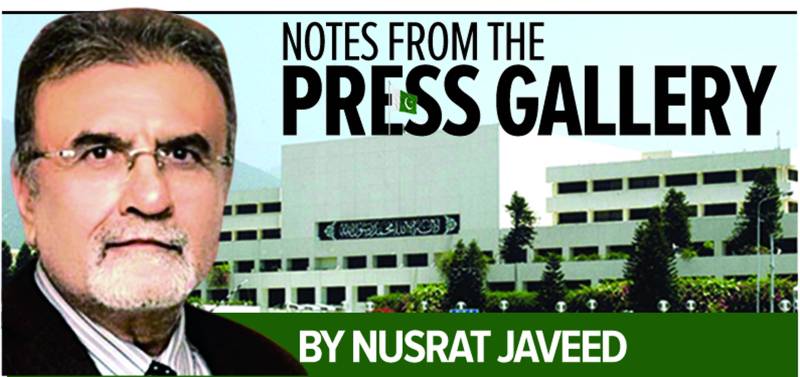I don’t want to waste your time by reporting who said what while discussing the Finance (Supplementary) Bill -popularly called the mini-budget- when the general debate started on the same in the National Assembly Tuesday evening.
Far more important for me is to report that the number-strong opposition seems miserably failing to execute the boasts of getting the mini-budget rejected, “by all means.” All the opposition parties obviously lack the will of preventing the Imran Government from collecting an additional amount of 350 billion rupees by withdrawing tax exemptions on a huge number of daily use items. By delivering bombastic speeches against the mini-budget, the opposition legislators simply want to establish their distance from it.
You don’t need to be a qualified economist to imagine that mass-scale withdrawal of tax exemptions on a vast number of items of everyday consumption would unleash an unbearable wave of inflation in the country. People with fixed or limited incomes will remain the main target of the mini-budget.
It is certain to widen inequality gaps and might also lead to serious incidences of food insecurity. It will still not really pinch the majority of our opposition leaders who in the end also represent the comfort-addicted elite of Pakistan.
Yet to pretend to be people-friendly, the opposition leaders talked and talked about the frightening impact of the mini-budget and vowed to block its passage. After issuing ballistic statements against the mini-budget, they also indulged in ceaseless consultations and in-house meetings to telegraph the message as if they were diligently looking for a well thought out strategy to block its passage. But “Words, words, words” always fail to produce a strategy.
Prime Minister Imran Khan has indeed been ruling with a vulnerable majority since August 2018. Apparently, his government’s survival strategically relies on the support furnished by a disparate group of allied parties. But the opposition parties strongly believed that the allies were not supporting the Imran Government on their own; “selectors” were rather managing them for “the selected.” Feeling helpless about this relationship, they kept desperately waiting for differences to surface between the two.
From the first week of October last year, they gleefully began to presume that anxiously awaited moment had finally come; simply for the fact that Prime Minister Imran Khan took unusual time to approve a high profile national security appointment. The surprising results of the first phase of local body polls in Khyber- Pakhtunkhwa, otherwise considered the invincible home base of the ruling party, also made the opposition parties believe that “selectors” had begun to show distance from “the selected.” But some opposition leaders also realised that the main cause of the ruling parties’ embarrassment in KP was the relentless price hike.
Keeping this factor in mind, they were somewhat right to imagine that to protect themselves from the political blowback of the inflation-compounding mini-budget, not only some allied parties but also a significant number of the national assembly members from within the ruling party would also not want to vote of in favor of it.
Spinning such wishful scenarios, the opposition leaders naively forgot the reality that Shaukat Tarin had been forced to revisit the budget he had presented in June last year, primarily to satisfy the IMF. This ultimate regulator of the global economy had promised to provide us with $6 billion in various installments, until September 2022. But to get the same amount in a comfortable flow, we have to take some ‘prior actions.’ Withdrawal of tax exemptions was included among them.
Pakistan would not be able to continue receiving the promised funding, if the government failed to enforce the mini-budget. It would also transmit the message that the IMF had abandoned Pakistan. And powerful quarters of the deep state, our opposition parties keep pleading before to seek the patronising pat would hate transmission of such a message as well.
The passage of the mini-budget, in short, is not the burden of the Imran Government only. All the powerful institutions of the State of Pakistan would rather want it passed without much ado.
I was genuinely surprised to notice that initiating the general discussion on the mini-budget, Shehbaz Sharif, otherwise famous for being the ultimate backroom deal closer, continued to pretend as if completely oblivious to this aspect of the harsh reality. His ire stayed focused on Imran Khan and his Finance Minister. Often, he also compared the feel-good numbers on the economy chart when the PML-N had left the government three years ago.
The PTI is also sticking to its counter-narrative, which keeps insisting that Pakistan is finding itself in dire financial straits these days, primarily due to the relentless corruption the previous governments of Pakistan Peoples Party and the PML-N allegedly committed during their turns in the government.
For how long can you bear with such pain-inducing screeches of broken records?






